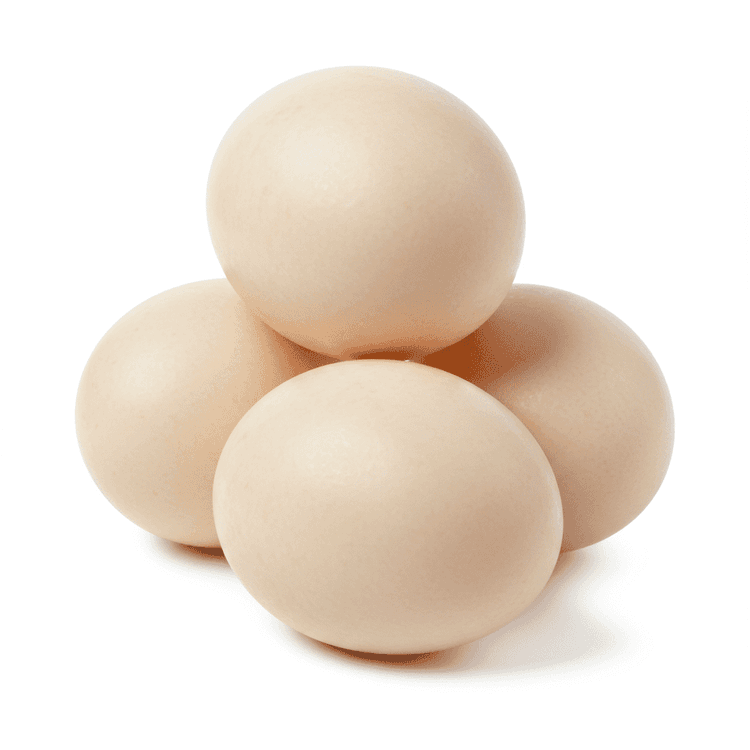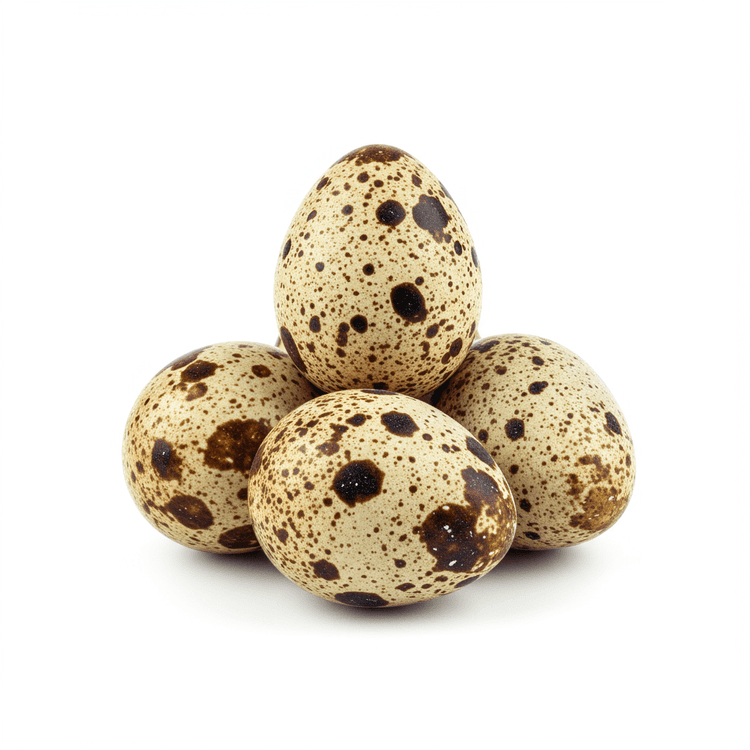
Duck Egg
Duck eggs are larger and more flavorful than chicken eggs, boasting a rich, creamy yolk and a slightly firmer, chewier texture in the white. Their shells are typically off-white, blueish-green, or gray, and they have a higher fat content, making them ideal for baking and enriching dishes. If you are looking for a more decadent egg experience with superior baking results and distinct yolk flavor, try duck eggs. Duck eggs make custards, cakes and quiches taste richer and more flavorful.
Common Uses
- For making richer custards and puddings: Duck eggs' higher fat content creates incredibly smooth and decadent desserts, adding a luxurious mouthfeel.- As a key ingredient in baking cakes and pastries: The extra fat and protein contribute to a tender crumb and improved rise in cakes, muffins, and other baked goods.- For creating fluffier omelets and scrambles: The denser whites whip up beautifully, resulting in airy and flavorful egg dishes.- In pasta making to produce richer and more flavorful noodles: Duck egg yolks give pasta a vibrant color and a silky texture, improving the overall eating experience.- As an indulgent fried or poached egg served with breakfast or brunch: The larger yolk offers a more substantial and satisfying bite, perfect for topping toast or breakfast sandwiches.
Nutrition (per serving)
Nutrition (per serving)
Calories
130.0kcal (6.5%)
Protein
9.6g (19.24%)
Carbs
1.4g (0.5%)
Sugars
0.4g (0.74%)
Healthy Fat
5.7g
Unhealthy Fat
3.5g
% Daily Value based on a 2000 calorie diet
Nutrition (per serving)
Calories
130.0kcal (6.5%)
Protein
9.6g (19.24%)
Carbs
1.4g (0.5%)
Sugars
0.4g (0.74%)
Healthy Fat
5.7g
Unhealthy Fat
3.5g
% Daily Value based on a 2000 calorie diet
Health Benefits
- Rich source of protein, essential for muscle building and repair.
- Contains choline, important for brain health and cognitive function.
- High in vitamin B12, which supports nerve function and energy production.
- Excellent source of selenium, an antioxidant that helps protect against cell damage.
- Provides iron, crucial for red blood cell formation and preventing anemia.
- Contains healthy fats, including omega-3 fatty acids, beneficial for heart health.
Chefadora AI is here.
Experience smarter, stress-free cooking.
Storage Tips
Duck eggs should be stored in the refrigerator in their original carton to maintain freshness and prevent contamination. Avoid washing them before storing, as this removes the protective coating. They will typically stay fresh for several weeks when properly refrigerated. For longer storage, you can freeze cooked duck egg dishes; however, freezing raw duck eggs is not recommended due to potential texture changes upon thawing.
Marnirni-apinthi Building, Lot Fourteen,
North Terrace, Adelaide, South Australia, 5000
Australia


